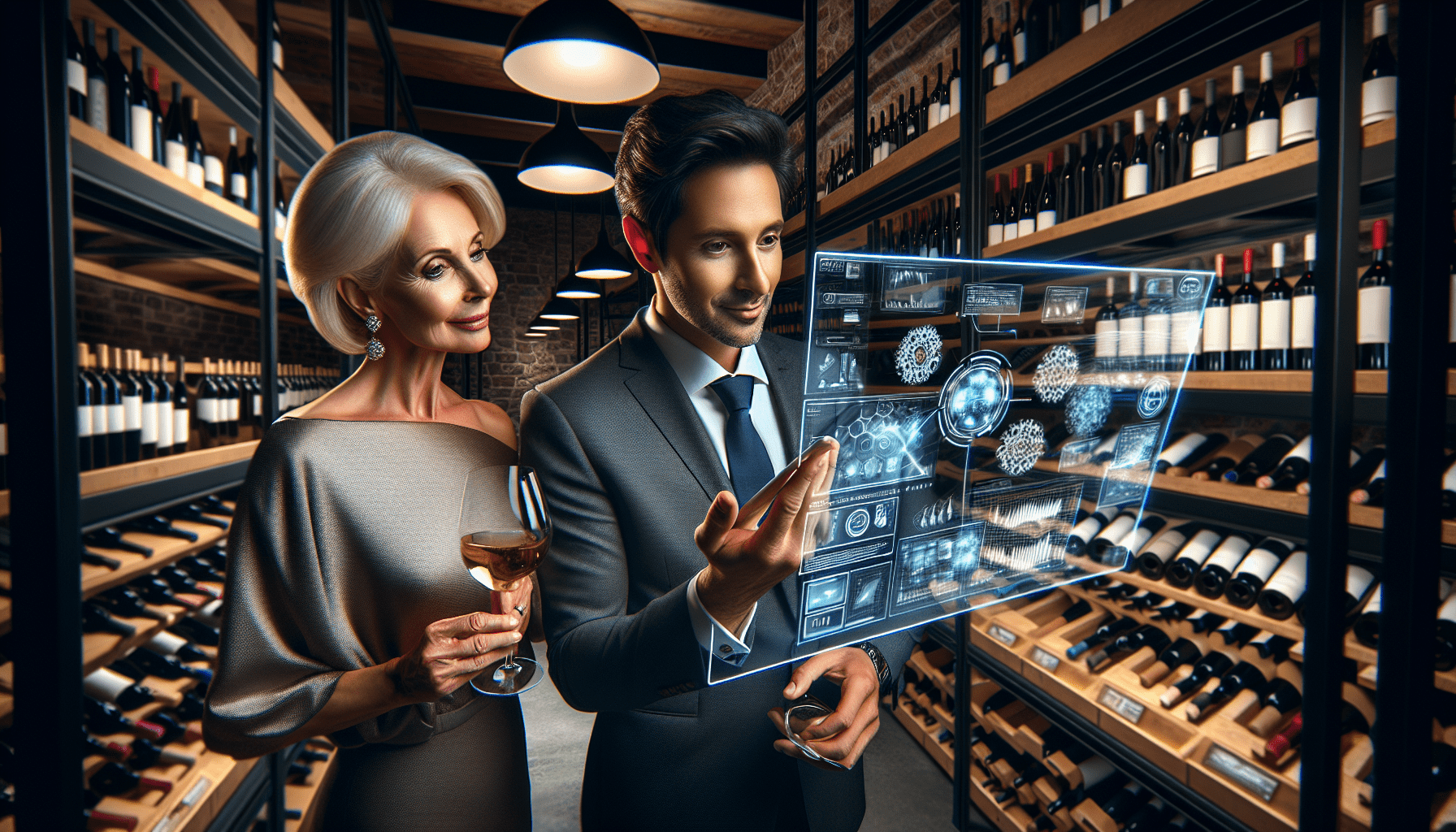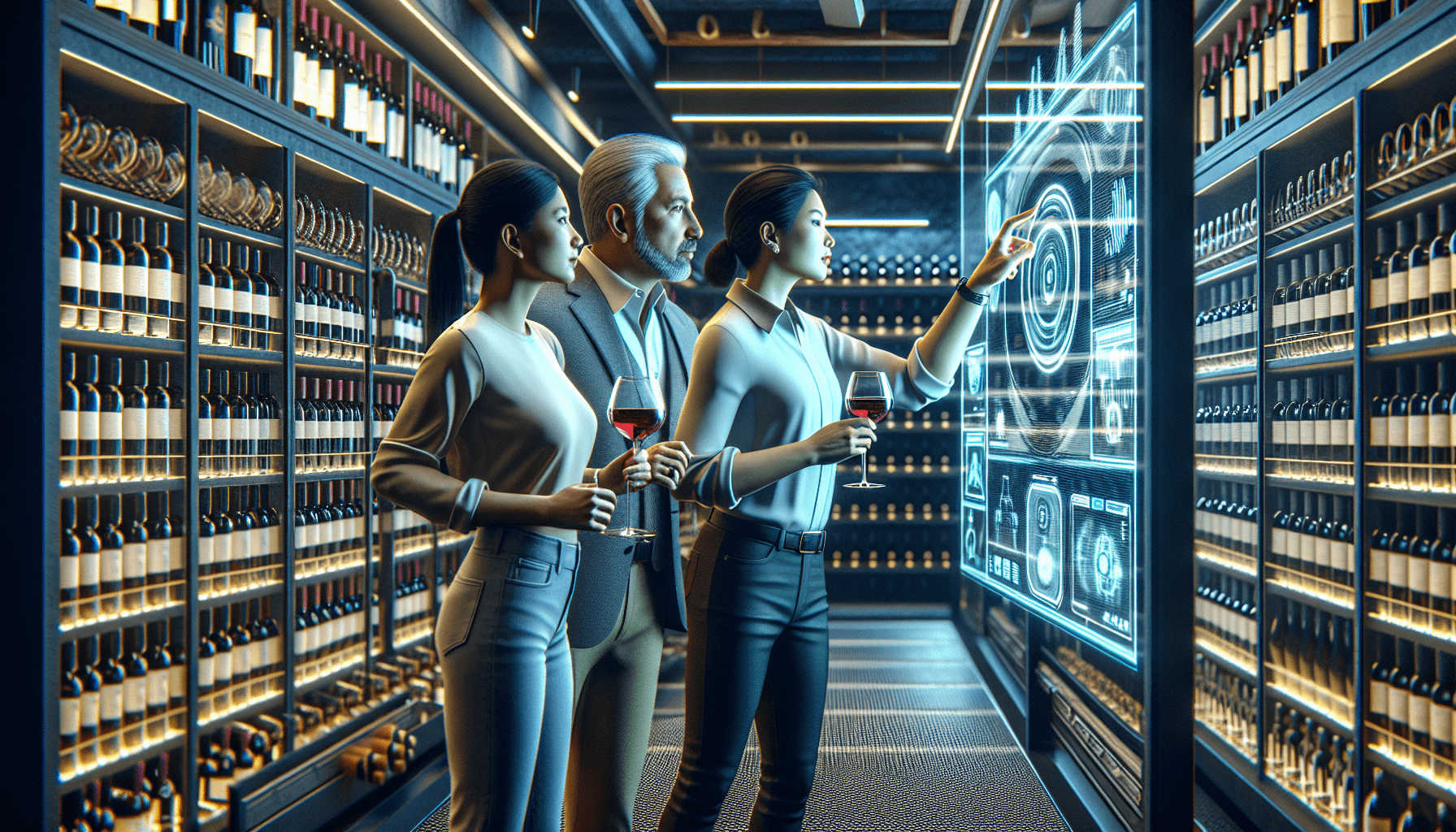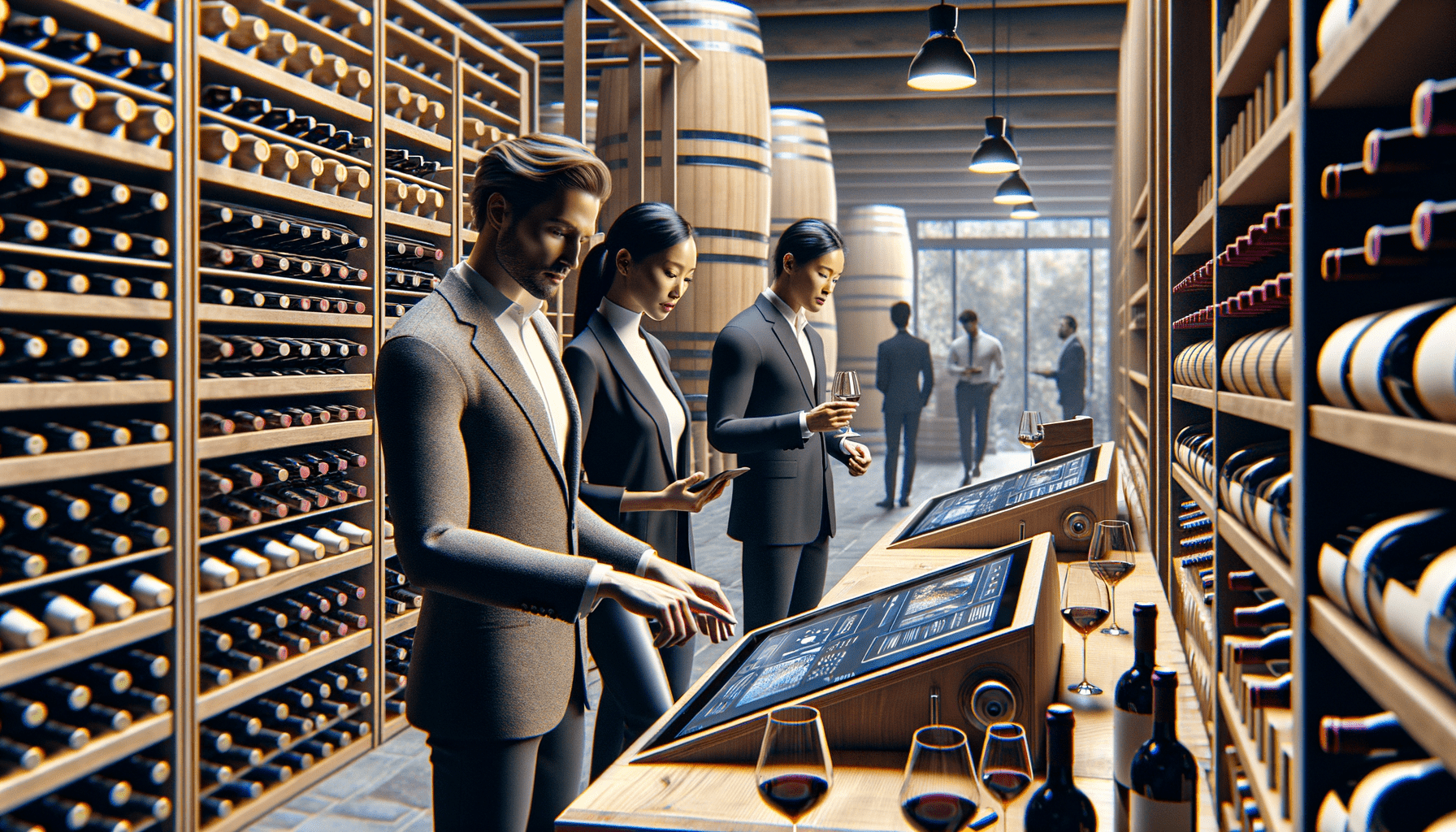Smart technology is revolutionizing wine cellars, offering advanced solutions for efficient wine storage and quality maintenance.
This article explores the integration of smart wine cellar technology, its benefits, and practical applications for wine storage managers, cellar designers, and hospitality managers.
Overview of Smart Wine Cellar Technology

Key Points
- Enhanced wine quality control through precise temperature and humidity management.
- Real-time monitoring and alerts for optimal wine storage conditions.
- Inventory management with digital tracking and organization.
- Remote access and control via smartphone apps.
- Integration with existing systems for seamless operation.
Introduction to Smart Wine Cellar Technology
Smart wine cellar technology encompasses a range of devices and systems designed to optimize wine storage conditions. These technologies include temperature and humidity sensors, automated climate control systems, and digital inventory management tools. By integrating these technologies, wine cellar managers can ensure that their collections are stored in the best possible conditions, preserving the quality and value of their wines.
One of the key benefits of smart wine cellar technology is the ability to monitor and control storage conditions remotely. Using smartphone apps, managers can receive real-time updates on temperature and humidity levels, as well as alerts if any issues arise. This level of control helps prevent potential problems before they can affect the quality of the wine.
Additionally, smart wine cellar technology can streamline inventory management. Digital tracking systems allow managers to keep detailed records of their collections, including information on each bottle’s origin, vintage, and storage conditions. This data can be easily accessed and updated, making it easier to manage large collections and ensure that each bottle is stored correctly.
Historical Development and Adoption
The adoption of smart wine cellar technology has been driven by advancements in sensor technology, wireless communication, and data analytics. Early systems focused primarily on temperature control, but modern solutions now offer comprehensive monitoring and management capabilities. The integration of IoT (Internet of Things) devices has further enhanced the functionality of these systems, allowing for seamless communication between different components.
As the technology has evolved, it has become more accessible to a wider range of users. Initially, smart wine cellar systems were primarily used by large commercial operations and high-end collectors. However, the development of more affordable and user-friendly solutions has made it possible for smaller businesses and individual enthusiasts to benefit from these technologies.
Today, smart wine cellar technology is used in a variety of settings, from private homes to restaurants and hotels. The ability to maintain optimal storage conditions and manage inventory efficiently has made these systems an essential tool for anyone serious about wine storage.
Challenges in the Wine Storage Industry

Maintaining Optimal Storage Conditions
One of the biggest challenges in the wine storage industry is maintaining optimal storage conditions. Wine is highly sensitive to temperature and humidity fluctuations, which can affect its quality and aging process. Traditional storage methods often rely on manual monitoring and control, which can be time-consuming and prone to human error.
Without precise control over storage conditions, wines can become spoiled or lose their intended flavor profiles. This is particularly problematic for high-value collections, where even minor deviations from ideal conditions can result in significant financial losses. Ensuring consistent temperature and humidity levels is crucial for preserving the quality and value of the wine.
Efficient Inventory Management
Managing a large wine collection can be a daunting task, especially when it comes to keeping track of each bottle’s location, origin, and condition. Traditional inventory management methods, such as handwritten logs or basic spreadsheets, are often insufficient for handling extensive collections. These methods can lead to errors, misplaced bottles, and difficulty in accessing important information.
Efficient inventory management is essential for ensuring that each bottle is stored correctly and can be easily located when needed. This is particularly important for businesses that need to provide accurate information to customers or clients. Without a reliable system in place, managing a wine collection can become a time-consuming and error-prone process.
Integration with Existing Systems
Another challenge in the wine storage industry is integrating new technology with existing systems. Many wine cellars have established processes and equipment that may not be compatible with modern smart technology. This can create barriers to adoption and limit the potential benefits of new solutions.
Integrating smart wine cellar technology with existing systems requires careful planning and coordination. It is important to ensure that new devices and software can communicate effectively with current equipment and processes. This can involve upgrading or replacing outdated components, as well as training staff to use new technology effectively.
Implementing Smart Wine Cellar Solutions
Step 1: Assessing Current Storage Conditions
The first step in implementing smart wine cellar solutions is to assess the current storage conditions. This involves evaluating the existing temperature and humidity levels, as well as identifying any potential issues or areas for improvement. Using sensors and monitoring devices, you can gather data on the current environment and determine whether it meets the optimal conditions for wine storage.
Once you have a clear understanding of the current conditions, you can identify any necessary adjustments or upgrades. This may include installing new climate control systems, adding insulation, or improving ventilation. By addressing these issues, you can create a stable and controlled environment for your wine collection.
Step 2: Installing Smart Technology
After assessing the current storage conditions, the next step is to install the smart technology. This includes setting up temperature and humidity sensors, automated climate control systems, and digital inventory management tools. It is important to choose devices that are compatible with your existing equipment and processes.
During the installation process, ensure that all devices are properly calibrated and configured. This may involve connecting sensors to a central monitoring system, setting up alerts for temperature and humidity fluctuations, and integrating inventory management software. Proper installation and configuration are crucial for ensuring that the smart technology functions effectively.
Step 3: Monitoring and Maintenance
Once the smart technology is installed, ongoing monitoring and maintenance are essential for maintaining optimal storage conditions. Regularly check the data from sensors and monitoring devices to ensure that temperature and humidity levels remain within the desired range. If any issues arise, address them promptly to prevent potential damage to your wine collection.
In addition to monitoring storage conditions, it is important to keep the inventory management system up to date. Regularly update the records for each bottle, including information on its origin, vintage, and storage conditions. This will help you maintain an accurate and organized inventory, making it easier to manage your collection and provide information to customers or clients.
FAQs
What is smart wine cellar technology?
Smart wine cellar technology refers to a range of devices and systems designed to optimize wine storage conditions. This includes temperature and humidity sensors, automated climate control systems, and digital inventory management tools. These technologies help maintain optimal storage conditions and streamline inventory management.
How does smart wine cellar technology improve wine storage?
Smart wine cellar technology improves wine storage by providing precise control over temperature and humidity levels. This helps prevent fluctuations that can affect the quality and aging process of the wine. Additionally, digital inventory management tools make it easier to track and organize wine collections, ensuring that each bottle is stored correctly.
Can smart wine cellar technology be integrated with existing systems?
Yes, smart wine cellar technology can be integrated with existing systems. However, it may require careful planning and coordination to ensure compatibility. This can involve upgrading or replacing outdated components, as well as training staff to use new technology effectively.
What are the benefits of using smart wine cellar technology?
The benefits of using smart wine cellar technology include enhanced wine quality control, real-time monitoring and alerts, efficient inventory management, and remote access and control via smartphone apps. These technologies help maintain optimal storage conditions and streamline the management of wine collections.
Future of Smart Wine Cellar Technology

The future of smart wine cellar technology looks promising, with several trends and advancements expected to shape the industry. Here are five predictions for the future:
- Increased adoption of AI and machine learning: AI and machine learning will play a significant role in optimizing wine storage conditions and predicting potential issues before they arise.
- Integration with blockchain technology: Blockchain technology will be used to create secure and transparent records of wine provenance and storage conditions, enhancing trust and authenticity.
- Development of more affordable solutions: As technology advances, more affordable smart wine cellar solutions will become available, making them accessible to a wider range of users.
- Enhanced user interfaces and apps: User interfaces and smartphone apps will become more intuitive and user-friendly, making it easier for users to monitor and control their wine storage conditions.
- Focus on sustainability: Future smart wine cellar technology will prioritize energy efficiency and eco-friendly solutions, reducing the environmental impact of wine storage.
More Information
- How New Tech Is Making Wine Cellars Smarter: An article discussing the latest advancements in smart wine cellar technology.
- Wine cellar technology and its impact | Heritage Vine Inc.: A detailed look at the impact of technology on wine cellar management.
- Smart wine cellar with its E-Cellar: Information on the E-Cellar, a smart wine cellar solution by La Sommelière.
- Smart Wine Cellar Market Share & Size | Industry Growth, 2031: A market analysis of the smart wine cellar industry and its growth projections.
Disclaimer
This is an AI-generated article with educative purposes and doesn’t intend to give advice or recommend its implementation. The goal is to inspire readers to research and delve deeper into the topics covered in the article.
- The Agentic Startup Manifesto - June 8, 2025
- Remote Hiring in 2025 - April 5, 2025
- Burnout in Remote Teams: How It’s Draining Your Profits - January 27, 2025
